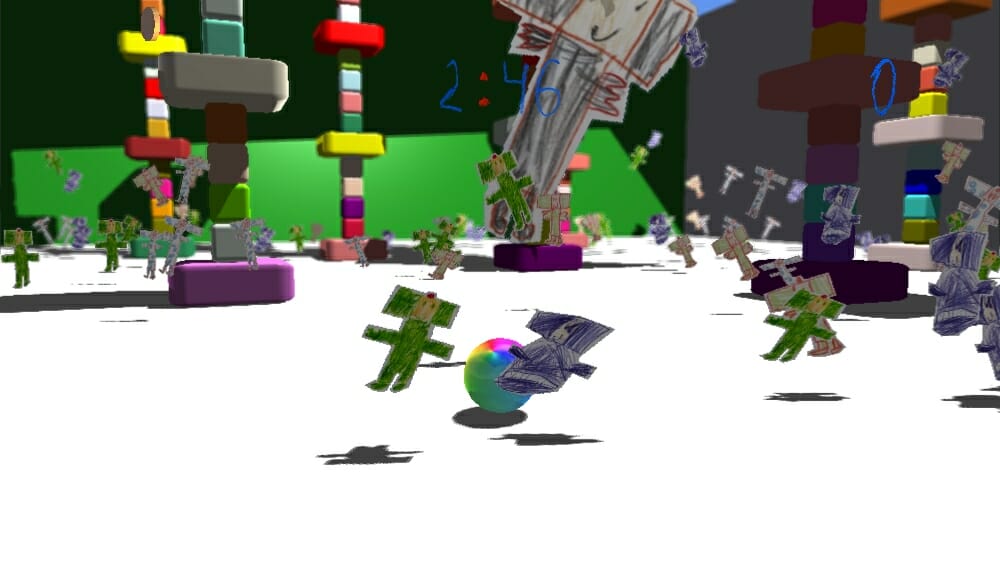Outsider Videogames: Rainbow Ball Into Adventure

Every month videogame developer Darius Kazemi reviews outsider videogames — games that are created by people outside the mainstream of videogame development.
According to its official description, Rainbow Ball into Adventure is “A game made by a family!” Available on Xbox Live Indie Games for 80 MSP (about $1), this is a fan tribute to Katamari Damacy programmed by Mike D. Smith, a professional videogame developer. What makes this an outsider videogame is that it was designed mostly by his four kids, who I’m guessing were clustered around the age of 5 when the game was developed. In a sense, very young children are the ultimate outsiders: they’re often not aware enough of conventions or institutions to be terribly affected by them, which can sometimes lead to them creating interesting or unexpected things.
When playing Rainbow Ball we’re presented with child’s drawings as menu screens and story placards; the 3D in-game art itself is a combination of 2D children’s drawings come to life in a Paper Mario or PaRappa style, along with extremely basic solid color blocks, spheres, letters, and numbers. On the most basic level, the gameplay is Katamari Damacy: you controll a ball, and you roll up things that are smaller than you onto your sticky ball. You roll up bigger and bigger items as you gain volume. Each level is themed on either the kinds of objects you’re collecting, or a new rule of some sort.
Rainbow Ball is a joy to play, and probably the main reason for that is the sound design. Much like in Katamari Damacy, every item you roll up makes a unique sound. For example, my favorite level is full of princesses drawn by the kids, dancing around the level — and also a little boy prince here or there. Each princess lets out a high, girlish scream, presumably produced by Smith’s daughters. Since there are scores of princesses dancing around at a very high density, you can hardly roll your ball without generating a cacophony reminiscent of an overstimulated boy band audience. But every so often you roll up a prince, and you hear a little “BLECH!” noise underneath it all, provided by a little boy whose definition of princehood is a negative one: a prince must simply to act in opposition to his princess sisters. It’s moments like these that make me laugh, but also make me remember what it was like to be a little boy, growing up with a younger sister.

-

-

-

-

-

-

-

-

-

-

-

-

-

-

-

-

-

-

-

-

-

-

-

-

-

-

-

-

-

-

-

-

-

-

-

-

-

-

-

-








































